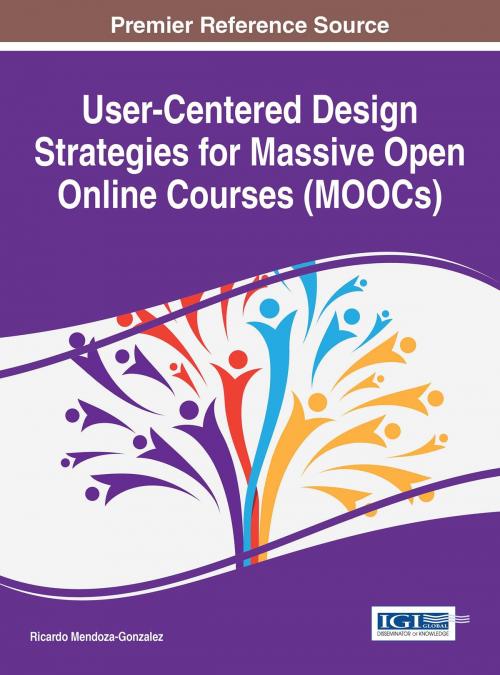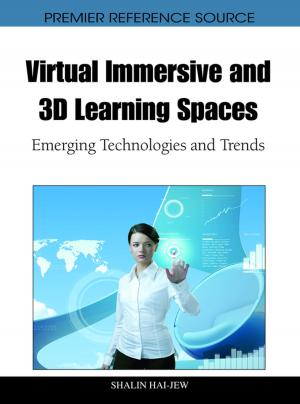User-Centered Design Strategies for Massive Open Online Courses (MOOCs)
Nonfiction, Computers, Application Software, Educational Software, Reference & Language, Education & Teaching, Non-Formal Education| Author: | ISBN: | 9781466697454 | |
| Publisher: | IGI Global | Publication: | January 7, 2016 |
| Imprint: | Information Science Reference | Language: | English |
| Author: | |
| ISBN: | 9781466697454 |
| Publisher: | IGI Global |
| Publication: | January 7, 2016 |
| Imprint: | Information Science Reference |
| Language: | English |
In today’s society, educational opportunities have evolved beyond the traditional classroom setting. Most universities have implemented virtual learning environments in an effort to provide more opportunities for potential or current students seeking alternative and more affordable learning solutions. User-Centered Design Strategies for Massive Open Online Courses (MOOCs) focuses on the best practices and effective design of student interaction within virtual learning environments. Highlighting strategies from human-computer interaction experiences and user-centered models, as well as emergent approaches and implementation techniques, this reference publication is designed for computer science students, academics, researchers, instructional designers, IT professionals, software developers, and educators interested in mobile technologies, social learning, and educational inclusion.
In today’s society, educational opportunities have evolved beyond the traditional classroom setting. Most universities have implemented virtual learning environments in an effort to provide more opportunities for potential or current students seeking alternative and more affordable learning solutions. User-Centered Design Strategies for Massive Open Online Courses (MOOCs) focuses on the best practices and effective design of student interaction within virtual learning environments. Highlighting strategies from human-computer interaction experiences and user-centered models, as well as emergent approaches and implementation techniques, this reference publication is designed for computer science students, academics, researchers, instructional designers, IT professionals, software developers, and educators interested in mobile technologies, social learning, and educational inclusion.















